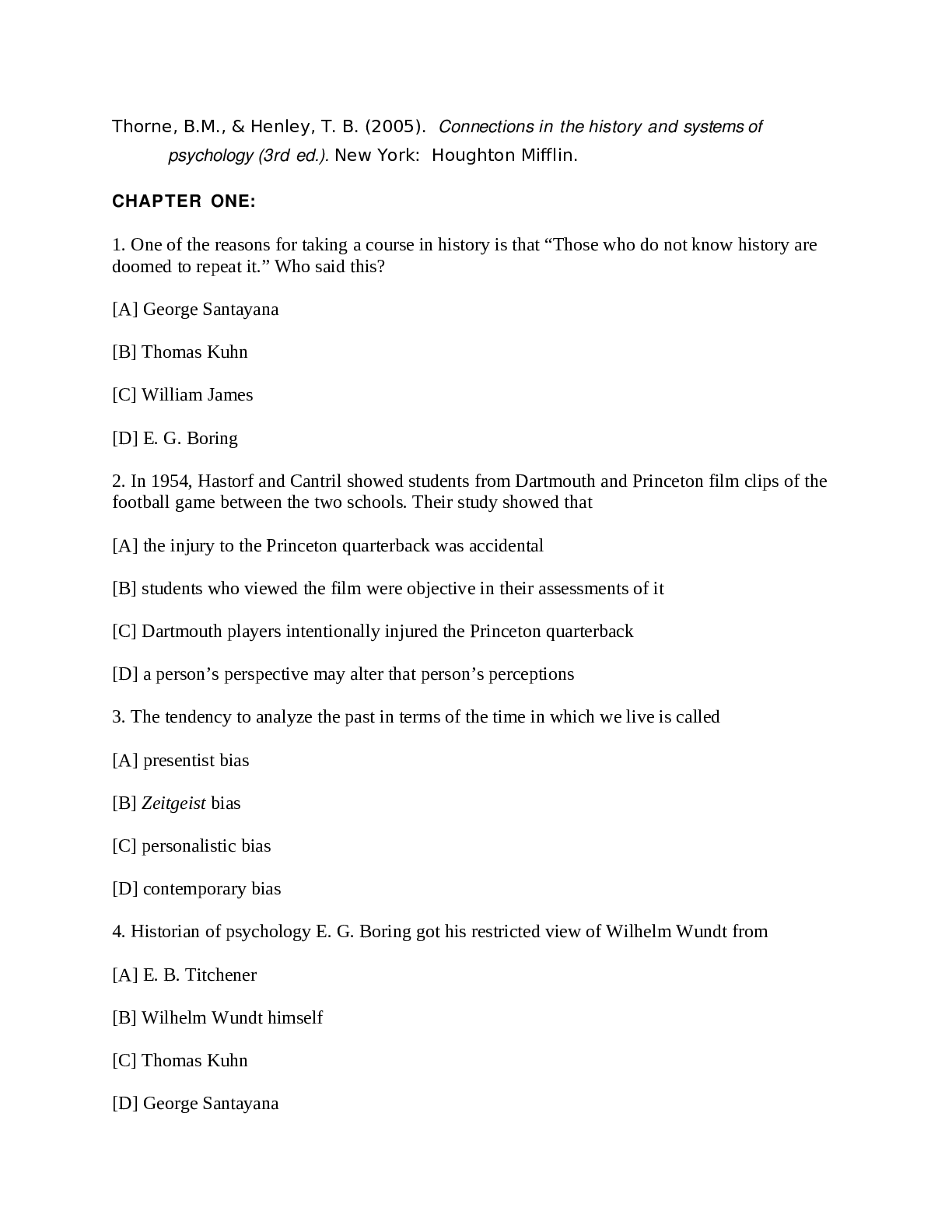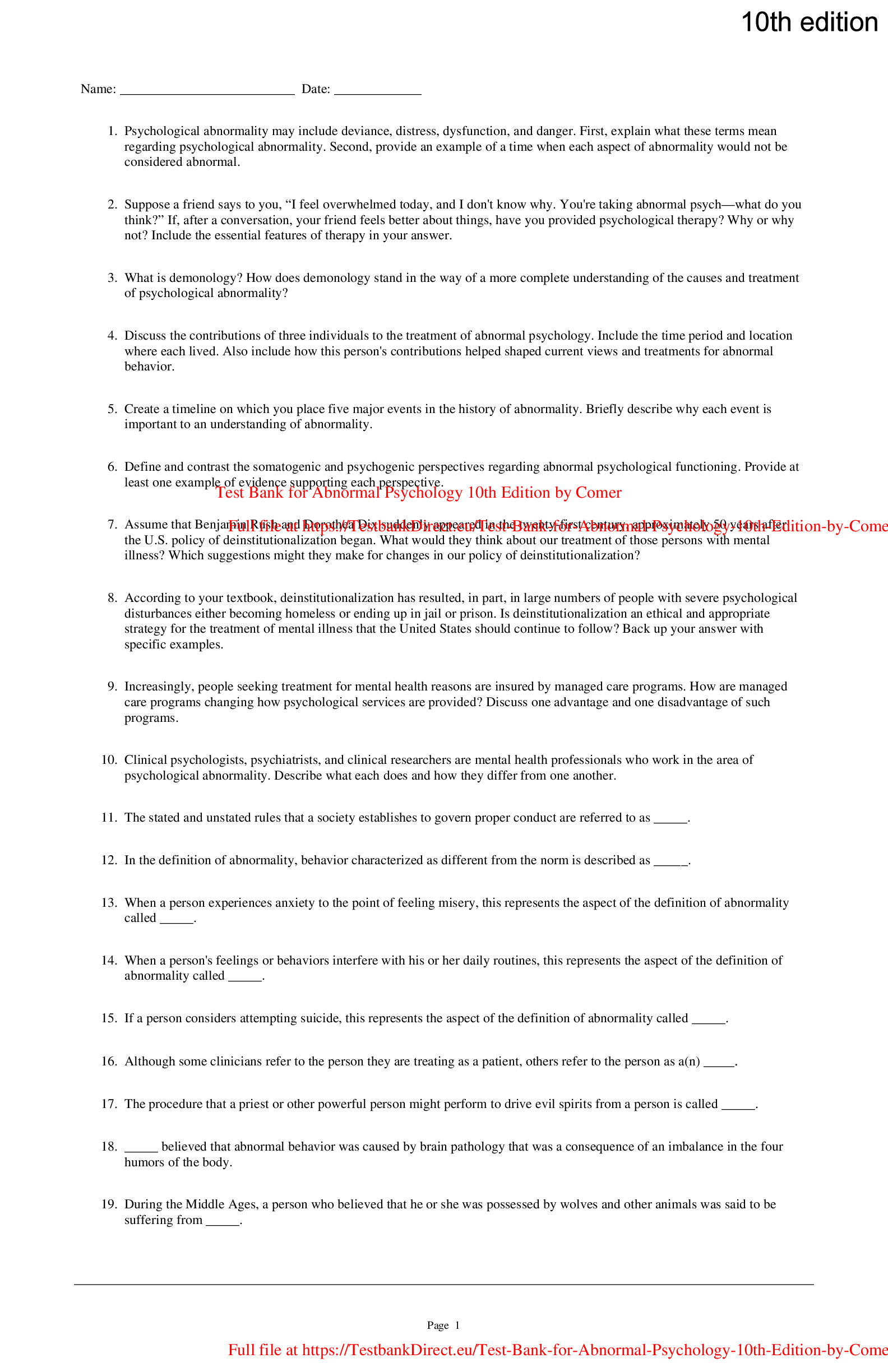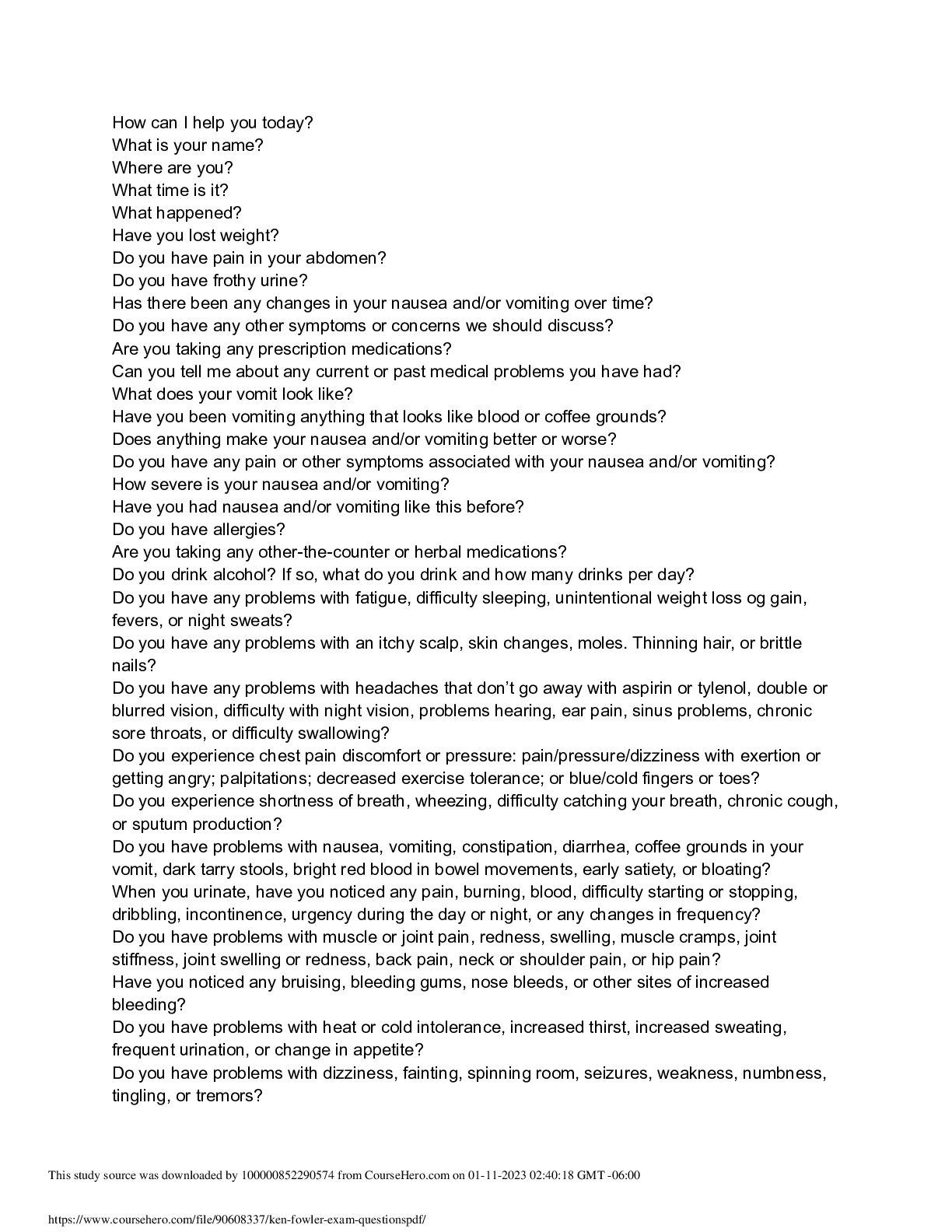Psychology > QUESTION PAPER (QP) > Thorne, B.M., & Henley, T. B. (2005). Connections in the history and systems of psychology (3rd ed.) (All)
Thorne, B.M., & Henley, T. B. (2005). Connections in the history and systems of psychology (3rd ed.). New York: Houghton Mifflin
Document Content and Description Below
1. One of the reasons for taking a course in history is that “Those who do not know history are doomed to repeat it.” Who said this? [A] George Santayana [B] Thomas Kuhn [C] William James [D]... E. G. Boring 2. In 1954, Hastorf and Cantril showed students from Dartmouth and Princeton film clips of the football game between the two schools. Their study showed that [A] the injury to the Princeton quarterback was accidental [B] students who viewed the film were objective in their assessments of it [C] Dartmouth players intentionally injured the Princeton quarterback [D] a person’s perspective may alter that person’s perceptions 3. The tendency to analyze the past in terms of the time in which we live is called [A] presentist bias [B] Zeitgeist bias [C] personalistic bias [D] contemporary bias 4. Historian of psychology E. G. Boring got his restricted view of Wilhelm Wundt from [A] E. B. Titchener [B] Wilhelm Wundt himself [C] Thomas Kuhn [D] George Santayana 5. The idea that discoveries and the people who make them are importantly influenced by the historical context is called the [A] Zeitgeist view of history [B] personalistic view of history [C] paradigm shift view of history [D] presentist view of history 6. The independent discovery of calculus at about the same time by Leibniz and Newton provides evidence for the [A] personalistic theory of history [B] paradigm shift theory of history [C] great person theory of history [D] Zeitgeist theory of history 7. The person who argued persuasively for the Zeitgeist theory of history was [A] E. B. Titchener [B] E. G. Boring [C] John B. Watson [D] Robert I. Watson 8. Charles Darwin was stimulated to publish his theory of evolution by a similar theory devised by [A] John Locke [B] Isaac Newton [C] Wilhelm Wundt [D] Alfred Wallace 9. According to Neisser’s research, we tend to remember information about ourselves in ways that [A] support our self-image [B] help us gain advantages over others [C] confirm our altruism [D] support the personalistic view of history [Show More]
Last updated: 2 years ago
Preview 1 out of 257 pages

Buy this document to get the full access instantly
Instant Download Access after purchase
Buy NowInstant download
We Accept:

Reviews( 0 )
$7.50
Can't find what you want? Try our AI powered Search
Document information
Connected school, study & course
About the document
Uploaded On
Apr 23, 2022
Number of pages
257
Written in
Additional information
This document has been written for:
Uploaded
Apr 23, 2022
Downloads
0
Views
154






